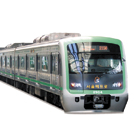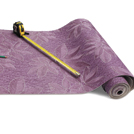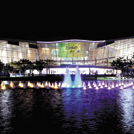|
Seoul, South Korea
 Value Added Tax
Value Added Tax
➤ VAT is 10 percent, although foreign exhibitors may qualify for exemptions when working with Korean suppliers.
➤ ATA Carnets can be used on imported items to avoid some taxes and fees.
 Voltage
Voltage
➤ Seoul uses 220 volts, but some exhibit halls might provide 110-volt service.
➤ Sockets typically resemble European outlets with two round pins.
➤ Adaptors and transformers are difficult to purchase on site for a reasonable cost.
 Garbage
Garbage
➤ Exhibit builders are responsible for disposing of build-and-burn exhibits and charge a flat fee depending on booth size and materials.
➤ Stand builders are responsible for ordering trash bins for installation and dismantle, and exhibitors must arrange for daily "dust bins" to handle trash during the show. Stand builders may provide this service.
 Cellphones
Cellphones
➤ Disposable and rental phones with prepaid minutes are available at the airport.
➤ Visitors may purchase prepaid SIM cards at the airport or hotels or rely on abundantly available Wi-Fi.
➤ Roaming charges are extremely high, and telephone networks might not work well with foreign phones.
 Shipping
Shipping
➤ Airfreight often takes five days. Ocean freight can take one month.
➤ Using the show's official freight forwarder is advised.
➤ Customs clearance usually takes three to four business days. Be meticulous when describing the contents and value of items in shipments. Discrepancies can cause delays.
➤ Port or trucking strikes can delay shipments.
➤ Banned items include: anything remotely pornographic in nature, meat products, and real or fake weapons.
 Payments
Payments
➤ Bank wire transfers are the most common payment form.
➤ Show contractors might accept payment by credit card, but small, local vendors typically prefer cash or bank wire transfer.
 Emergencies
Emergencies
➤ Dial 1330 for all emergencies. Press 2 for an English operator.
General Facts and Tips

➤ Seoul traffic is horrendous, making the subway one of the most efficient modes of transportation.
➤ Business-class hotels that do not belong to chain companies are typically very good choices for business travelers.
➤ The preferred method for travel between Incheon International Airport and downtown is an express bus that costs approximately $15 each way, compared to $80 for a cab ride. Public bus transportation is difficult to navigate for visitors.
➤ The most economical lodging is usually a service apartment, which is the U.S. equivalent of a condo rental.
➤ Orange taxis are equipped with phones that offer free translation services to riders.
➤ It is considered rude to discuss North Korea with South Koreans, and do not criticize food, traffic, or the culture.
➤ It's not uncommon for trade shows to have at least one day that's open to the general public.
Hospitality

➤ Large exhibits often feature lounges where snacks and beverages are served. Light buffets may also be offered, though are often reserved for special guests. Small exhibits commonly offer beverages and candies.
➤ Korean beverages such as plum juice, sikhye (sweet rice water), and sujeongwa (cinnamon/ginger tea) might be served along with traditional hot and cold beverages such as coffee, tea, and soft drinks. Alcohol, typically beer and wine, is sometimes served on the trade show floor.
➤ In dining situations, it is considered rude to point chopsticks or skewer your food with them.
➤ Ask before taking a seat, as there is often a seating protocol Korean diners follow.
Language

➤ English is often spoken in business settings, but an interpreter is recommended since your counterparts may not acknowledge any misunderstandings.
➤ Signs, literature, and business cards should be printed in both Korean and English text.
Staff Attire

➤ Business suits in conservative colors are most common on the show floor for both men and women. Short skirts and sleeveless tops should not be worn by women.
➤ Men should avoid wearing jewelry with the exception of a wedding ring and wristwatch.
Installation and Dismantle

➤ Show organizers generally insist that exhibitors choose from an approved list of service providers, which can include hundreds of vendors. So use a local partner to vet them or ask potential providers for western client references.
➤ Vendors and laborers with adequate English skills are rare, so bilingual project supervisors are essential.
➤ Building products and finishing techniques differ from those in the United States. Wallpaper and lacquer finishes prevail, and carpet is extremely thin.
➤ Straight-time labor typically costs half of what it would in the United States, though fees can quadruple for after-hours work. Drayage charges are uncommon.
Venues and Resources

➤ With 1,168,000 square feet of exhibit space, Kintex is the largest and most modern exhibition venue. It's a 30-minute cab ride from the city center, but is surrounded by lodging and restaurants.
➤ COEX Convention and Exhibition Center is part of a 914,000-square-foot mall complex located near central Seoul.
➤ The Association of Korean Exhibition Industries ( http://a.kei.or.kr/eng/index.jsp) is a local trade show association.
Culture

➤ It is a sign of respect to bow slightly before offering to shake hands. Korean women might not shake hands. The person with the most senior title should offer the handshake.
➤ In Asian cultures, how you treat someone's business card is an indication of how you will treat him or her. As such, business cards should be handled with two hands and studied before being placed in a case or folder; never stow them in a pocket.
➤ Koreans strongly prefer to do business with those with whom they have a personal connection.
➤ Saying "no" is considered harsh, so try to avoid saying it and phrase questions to allow alternatives to yes/no answers.
➤ In this formal culture, surnames and limited physical contact are preferred. The surname appears first and the given name second on written documents.
➤ Koreans expect to deal with business contacts of similar rank. Also, though women are gaining stature in the business environment, some Korean men prefer to do business with men.
➤ Modesty is important, so deny compliments rather than say "thank you," which is considered impolite.
➤ Contracts may be viewed as general statements of consensus rather than binding documents.
SOURCES
Ian Chinnock, managing director, Neoscreative Ltd.; Christopher Dorn, president, Idea International; Lois Lee, senior account manager, Pico North Asia Ltd.; Beatrice Phong Houri, managing director, Sphayra LLC; Tim Sullivan, CEO, ExhibitMatch; Richard Yang, president, Rish Iyagi Co. Ltd.
|








 ➤ Seoul traffic is horrendous, making the subway one of the most efficient modes of transportation.
➤ Seoul traffic is horrendous, making the subway one of the most efficient modes of transportation.  ➤ Large exhibits often feature lounges where snacks and beverages are served. Light buffets may also be offered, though are often reserved for special guests. Small exhibits commonly offer beverages and candies.
➤ Large exhibits often feature lounges where snacks and beverages are served. Light buffets may also be offered, though are often reserved for special guests. Small exhibits commonly offer beverages and candies. ➤ English is often spoken in business settings, but an interpreter is recommended since your counterparts may not acknowledge any misunderstandings.
➤ English is often spoken in business settings, but an interpreter is recommended since your counterparts may not acknowledge any misunderstandings.  ➤ Business suits in conservative colors are most common on the show floor for both men and women. Short skirts and sleeveless tops should not be worn by women.
➤ Business suits in conservative colors are most common on the show floor for both men and women. Short skirts and sleeveless tops should not be worn by women. ➤ Show organizers generally insist that exhibitors choose from an approved list of service providers, which can include hundreds of vendors. So use a local partner to vet them or ask potential providers for western client references.
➤ Show organizers generally insist that exhibitors choose from an approved list of service providers, which can include hundreds of vendors. So use a local partner to vet them or ask potential providers for western client references. ➤ With 1,168,000 square feet of exhibit space, Kintex is the largest and most modern exhibition venue. It's a 30-minute cab ride from the city center, but is surrounded by lodging and restaurants.
➤ With 1,168,000 square feet of exhibit space, Kintex is the largest and most modern exhibition venue. It's a 30-minute cab ride from the city center, but is surrounded by lodging and restaurants.  ➤ It is a sign of respect to bow slightly before offering to shake hands. Korean women might not shake hands. The person with the most senior title should offer the handshake.
➤ It is a sign of respect to bow slightly before offering to shake hands. Korean women might not shake hands. The person with the most senior title should offer the handshake.